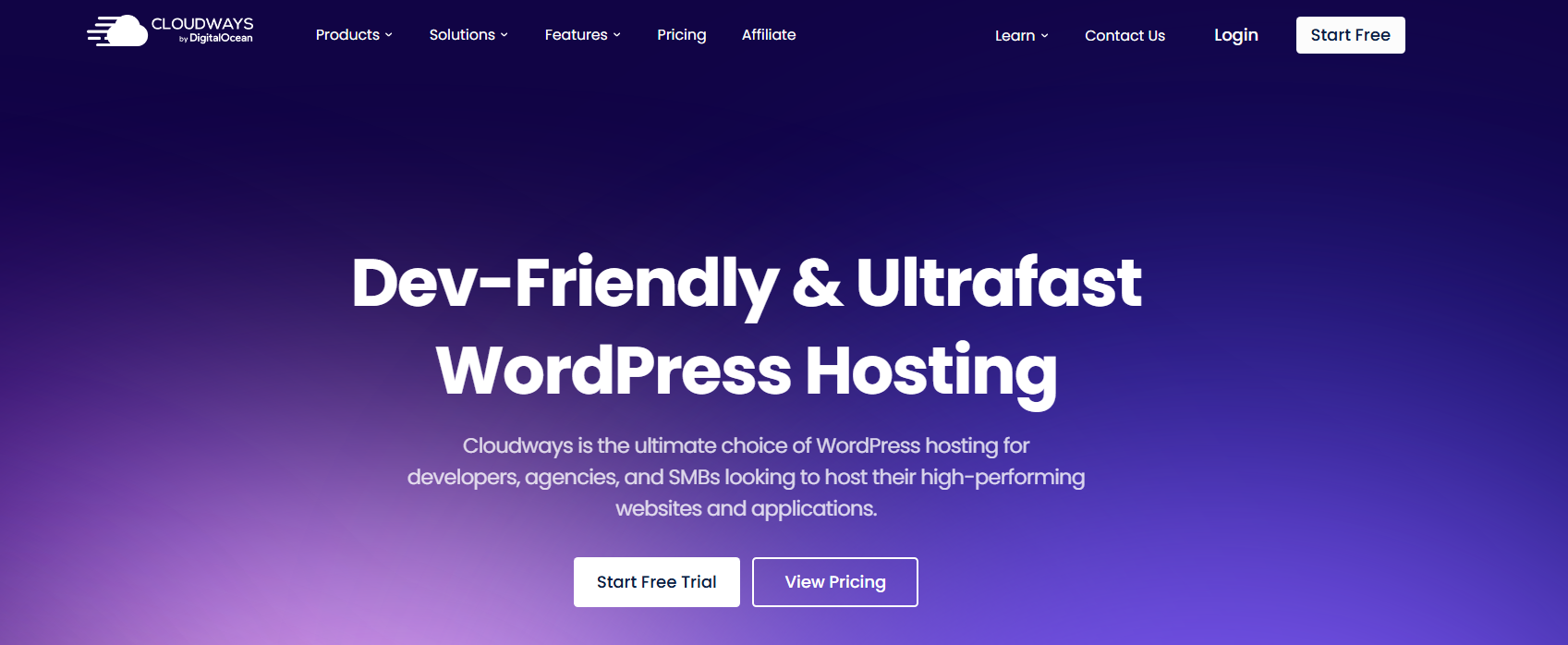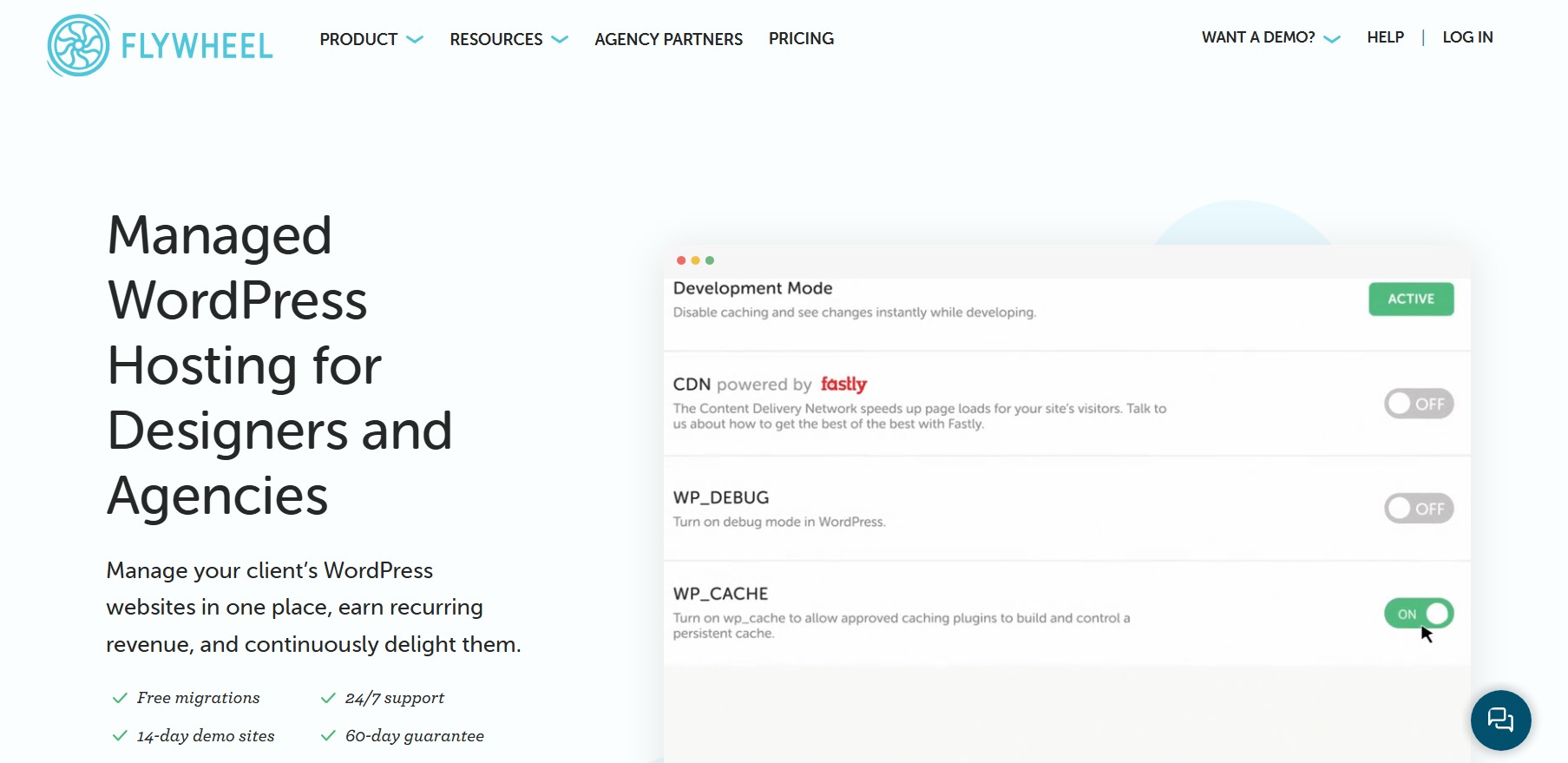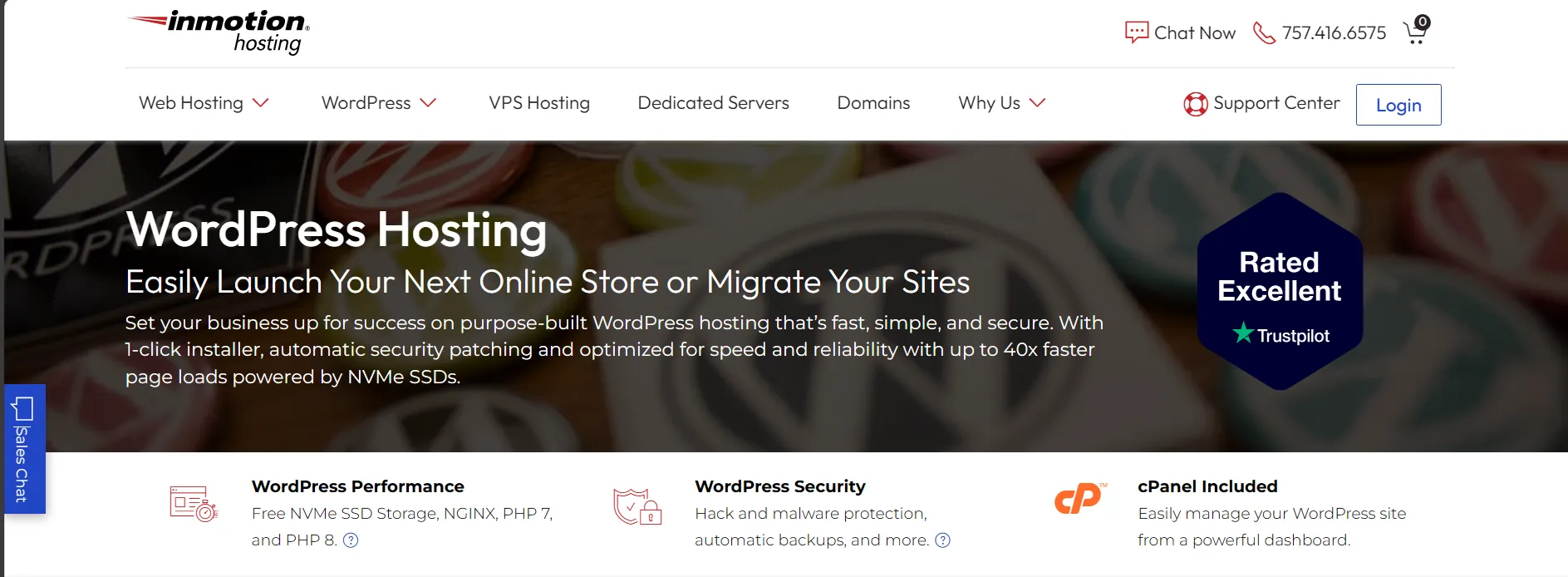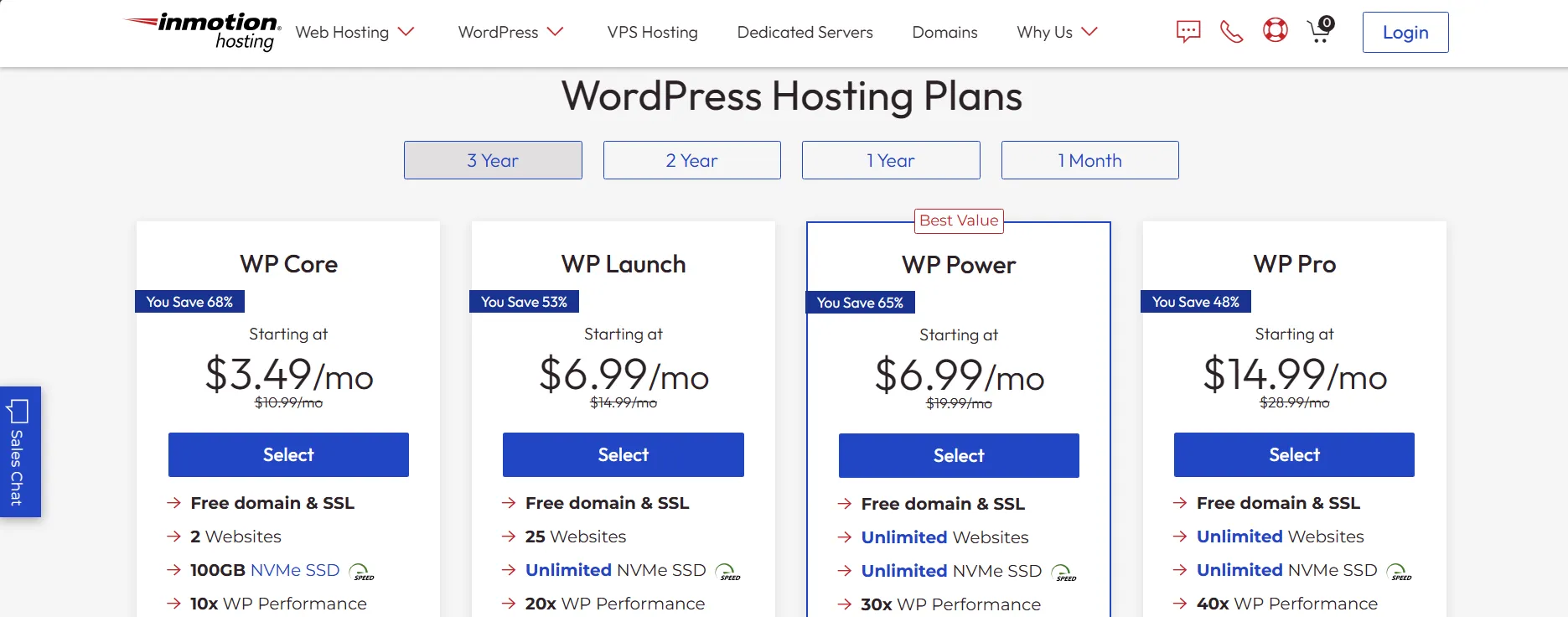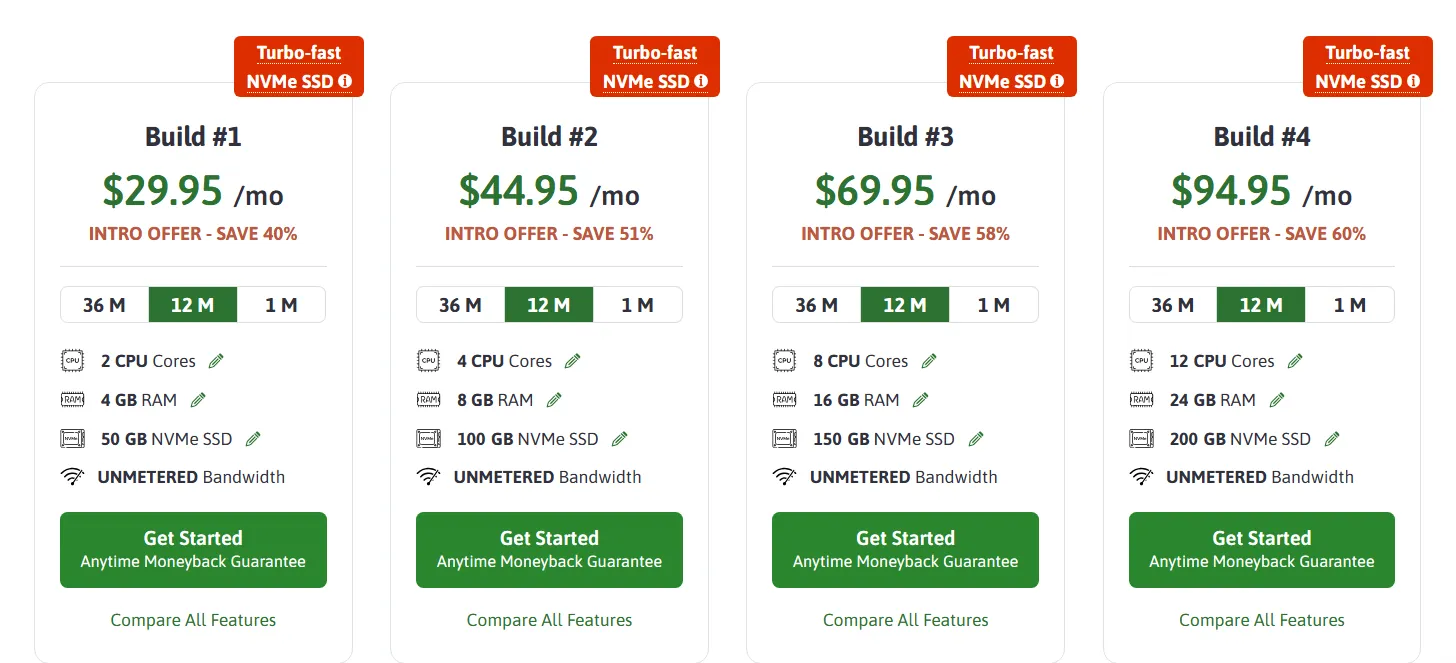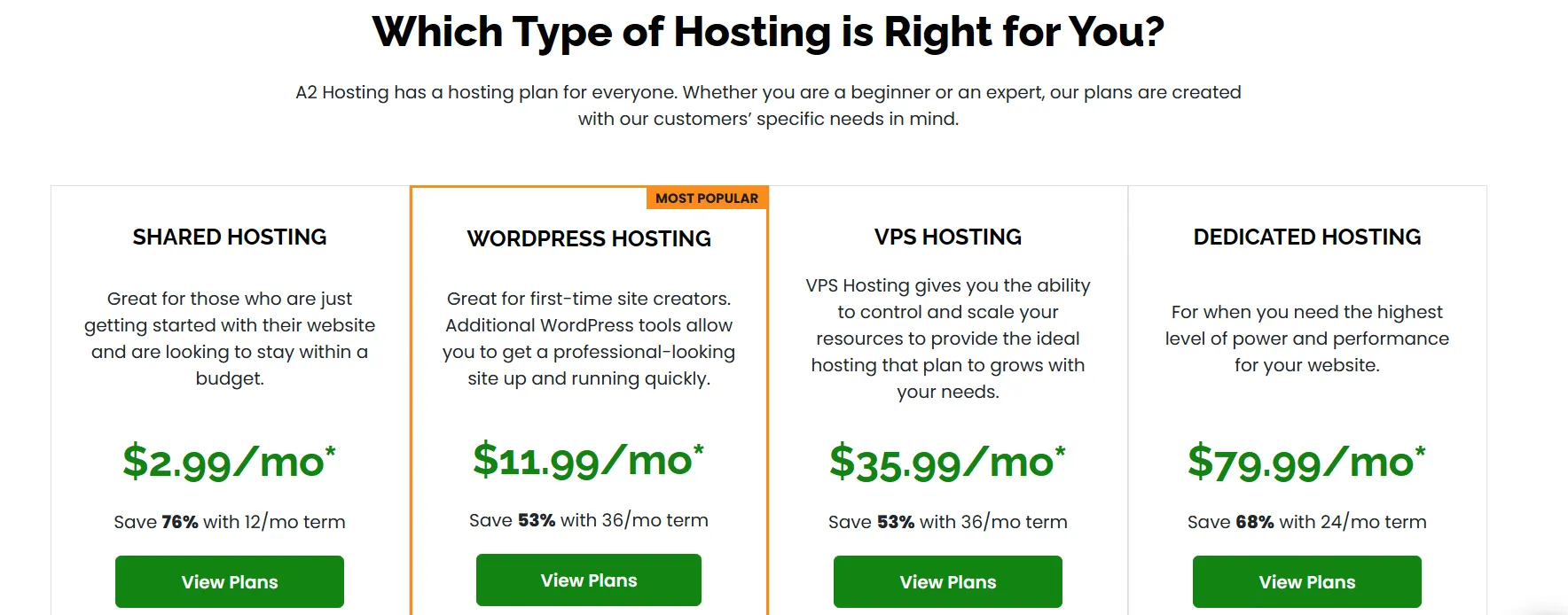- Cloudways offers the unique feature of choosing your cloud hosting VPS provider from DigitalOcean, Linode, Vultr, AWS, and Google Cloud. It's a compelling option, possibly better than SiteGround.
- When it comes to managed cloud WordPress service providers, Kinsta is a well-known name. They offer a range of useful features, such as automated website backups, security monitoring, and an intuitive staging environment.
- WP Engine offers high-performance hosting options for WordPress users serious about scaling their traffic. The service is optimized for WordPress websites, down to the support staff level.
Are you looking for SiteGround alternatives? Well, I personally understand the importance of finding the right web hosting service that meets your needs.
As someone who has explored different hosting options, I have discovered that there are numerous providers available online, offering comparable features, services, and competitive prices.
When it comes to hosting solutions, good customer service, and value for money, settling for just any provider shouldn’t be your only option.
Instead, why not aim to find the perfect alternative to SiteGround? In this blog post, I will delve into some of the best SiteGround alternatives currently available in the market.
I will examine their features, performance statistics, and pricing plans, providing you with valuable insights.
So, whether you are in need of an upgrade, seeking a change from your current hosting provider, or simply curious about the available choices, I invite you to read on!
Together, let’s explore the options and find the hosting service that suits you best.
Which SiteGround Alternatives is My Personal Favourite?
When it comes to finding a web hosting provider, SiteGround is often at the top of the list. However, sometimes, it’s good to explore other options and see what competitors are out there.
Personally, I’ve found Cloudways to be an excellent alternative to SiteGround.
Not only does Cloudways offer competitive pricing, but their user-friendly interface and top-notch customer support have continuously impressed me.
Plus, their server options include some of the top cloud hosting providers in the industry, allowing for maximum flexibility and scalability.
If you’re on the hunt for a reliable web hosting provider, I highly recommend giving Cloudways a try.
12 Best SiteGround Alternatives 2025
1. CloudWays:
Cloudways is an intriguing option that might just as well have been classified as ‘better than SiteGround’.
However, depending on your demands, they may be less expensive than SiteGround alternatives, which is why I included them in this category. The most distinctive feature of Cloudways is that they do not operate their hosting infrastructure.
Rather than that, they allow you to select your cloud hosting VPS provider from a list that includes DigitalOcean, Linode, Vultr, AWS, and Google Cloud.
Pricing Plans:
Once you’ve made your selection, Cloudways will configure everything and function like a conventional host.
Cloudways’ pricing is determined by your underlying cloud hosting provider – the lowest choice is a $ 11 per month DigitalOcean server.
All plans have no arbitrary website or traffic limitations – you’re only restricted by the resources available on your VPS.
I prefer the Vultr High-Frequency (HF) servers for significantly improved performance, which start at only $ 13. I just converted many of my sites from SiteGround to Vultr HF and was blown away by the speed.
Customer Review:
2. FlyWheel:
Flywheel simplifies the process of creating a website from the ground up with its free demo sites and one-click staging tools, which may be quite beneficial for novices.
In general, they provide the necessary speed and other mechanics to keep WordPress websites working properly.
When evaluating them as a SiteGround alternative option, there are two factors I’d emphasize.
Pricing Plans:
The first is cost – although FlyWheel’s entry-level plan is almost twice the price of SiteGround’s entry-level plan, this is a dedicated and specialized environment, not shared hosting.
Second, FlyWheel has capabilities that are beneficial to freelancers and developers.
They provide a client billing transfer feature that enables you to quickly design and then transfer everything to your customers. FlyWheel Managed WordPress Hosting begins at $ 13 per month.
Customer Review:
3. Kinsta:
When it comes to Managed Cloud WordPress service providers, Kinsta is a well-known name.
They have a slew of useful features, like automated website backups, security monitoring, and an intuitive staging environment.
Pricing Plans:
More significantly, their support team is highly helpful and well-versed in WordPress, allowing them to provide the finest dedicated assistance money can buy.
This comes at a cost, and Kinsta’s shared hosting is much more costly than SiteGround alternatives.
However, if you’re looking for a WordPress theme with a strong focus on performance and aren’t scared to spend, Kinsta is the way to go. The Kinsta Managed Cloud WordPress package begins at $7 per month.
Customer Review:
4. WP Engine:
WP Engine‘s entry-level plan starts at $ 20 per month, which is still significantly more expensive than SiteGround’s new shared hosting prices – nearly triple.
They are, nonetheless, a mainstay in the world of WordPress hosting, with over 120,000 clients in 140 countries.
Pricing Plans:
WP Engine provides high-performance hosting options for people who are serious about their WordPress projects and want to scale their traffic.
These are optimized for WordPress websites down to the level of the support staff.
WP Engine is an excellent option for anybody who needs more than what shared hosting web providers can provide. Their Managed Cloud WordPress option is available for as little as $ 20 per month.
Customer Review:
5. InMotion Hosting:
InMotion is another host with a strong reputation, but in their case, we’re more concerned with the staggering expanse of offered plans.
Even if you disregard the rest of the offerings, the VPS here is fantastic.
Pricing Plans:
At the entry-level, you may buy an unmanaged VPS for as little as $3.49 per month.
This extends to managed virtual private server (VPS) plans that seem to be dedicated servers. In any event, what I’m trying to convey is that this is simply another illustration of the cheap entry cost associated with VPS.
Even better, there is obvious scalability of resources inside the VPS that you may refer to here. VPS hosting with InMotion begins at $3.49 per month.
Customer Review:
6. Interserver:
Interserver has been in the web hosting industry for almost 19 years. It provides shared hosting as well as reseller options. Their VPS services are noteworthy since they begin at an astonishingly cheap price of $ 2.5 per mo.
Of course, you cannot expect all the bells and whistles at that price, but even the cheapest Mercedes is a reliable vehicle.
Despite this, the price is still less than what SiteGround alternatives charge for its entry-level shared hosting package.
Pricing Plans:
Interserver VPS plans begin at $ 6 per month. If you go from SiteGround alternatives to Interserver, you’re practically receiving a free upgrade.
Managing the VPS environment may provide some difficulties for newcomers, but you’ll ultimately have to learn, right?
Customer Review:
7. ScalaHosting:
ScalaHosting‘s price system is straightforward — there are three shared and VPS hosting options available, with advanced plans offering more capacity and functionality.
The shared hosting options are reasonably priced in comparison to the industry norm, but the VPS hosting is rather outstanding.
Pricing Plans:
The primary reason to choose Scala VPS is their novel approach to cPanel. ScalaHosting developed their SPanel replacement when license costs for it grew.
As a result, they have become the default solution for individuals looking to escape the cPanel trap.
This makes them an intriguing migration option for those contemplating an upgrade.
Customer Review:
8. Bluehost:
One of the finest aspects of Bluehost is its responsive and pleasant customer service. Bluehost surpasses standard customer service standards with its rapid response through live chat and rich knowledge base.
Bluehost‘s most basic shared plan comes with 50 GB of storage space, which is already quite a bit. If you need more quantities, just upgrading up a tier will provide you with unmetered amounts.
Additionally, site owners may use their web design and marketing services – for a cost.
Pricing Plans:
Their shared hosting plans start at only $ 2.95, which is less than half the price of SiteGround’s lowest plan at the moment.
Customer Review:
9. TMDHosting:
TMDHosting presently provides three reasonably-priced shared hosting plans.
All three options, Starter, Business, and Professional, feature a free domain name, unlimited storage and bandwidth, and other benefits.
The Starter plan, which is their most affordable option, includes a single CPU core and 1 GB of RAM.
While this is a little amount, it is more than plenty for low traffic level websites to operate successfully. The primary difference is that the lowest package does not include add-on domains.
Pricing Plans:
TMDHosting shared hosting plans begin at $ 2.99 per month. Additionally, the cost is currently substantially cheaper than that of SiteGround alternatives.
They are also an excellent option in terms of reputation for those looking to save costs.
Customer Review:
10. GreenGeeks:
One of GreenGeeks‘ primary selling points is its commitment to environmental stewardship. GreenGeeks compensates the environment for the energy used by data centers via the purchase of renewable energy credits.
Surprisingly, this has not resulted in them raising costs, but rather in them offering very low options to their subscribers.
Pricing Plans:
GreenGeeks is an excellent alternative for individuals looking to switch to a green hosting business that also provides a cost-effective solution.
GreenGeeks shared hosting plans begin at $ 2.95 per month. However, individuals seeking further scalability should be aware that GreenGeeks is mostly limited to high-end VPS options.
Customer Review:
11. Hostinger:
Hostinger, in my opinion, is the king of inexpensive hosting. Their entry-level, single-website hosting package is relatively restricted, but for $ 1.99, it represents an excellent value proposition.
However, if you’re seeking anything greater, there is an upward trajectory and you may upgrade to better solutions on the same platform.
Additionally, they are a pretty inventive host, having developed a variety of solutions such as the Zyro website builder.
This functionality, which is still in its infancy, is included for free. Indeed, if you purchase the website development package, you may host a beginning site on their Zyro platform for free.
Pricing Plans:
With an introductory price of $ 1.99 per mo, consumers looking for extremely affordable but expandable plans will find a suitable fit with Hostinger.
Perhaps not on the same level of performance as SiteGround alternatives, but still rather outstanding for the price.
Customer Review:
12. A2 Hosting:
With over two decades of web hosting expertise, A2 Hosting has practically polished its function in the industry. They’ve nailed practically everything, from a simplified product offering to ideal server performance.
Don’t be concerned about the cost; just choose a plan and proceed — there are plenty of opportunities to grow.
While this may seem like the way most other providers promote, a closer examination reveals the A2 Hosting edge.
There is a lot to shout about here, from the anytime money-back guarantee to the rarely-found features on shared hosting rates.
Pricing Plans:
Prices for A2 Hosting plans vary significantly, which means you get to select how much you spend and what you receive. In any case, you’ll benefit from excellent, dependable performance on a reputable platform.
The option is to pay much more for a SiteGround alternatives plan.
With shared hosting beginning at $ 2.99 per month, A2 Hosting’s pricing seems to be very standard. Nonetheless, this service offers a diverse selection of options, and its rates rapidly escalate.
Their Managed VPS plans start at roughly $ 40 per month. A2 Hosting is far from what I would consider a budget-friendly hosting provider. Nonetheless, their plan costs.
Customer Review:
FAQs:
✌️ Is SiteGround overpriced?
SiteGround is far more costly than the other major hosting providers. It may not seem that way when you look at their shared hosting costs, but it is because they provide substantial savings.
👍 Which is better WordPress or SiteGround?
SiteGround is less expensive than WP Engine and has greater storage and bandwidth choices. WP Engine excels in uptime and has more advanced WordPress functionality; yet, they have obnoxious sales representatives. Both perform well when it comes to performance.
🙋♂️ Which is better SiteGround or Hostinger?
Hostinger is less expensive and provides a higher level of performance than SiteGround. Its stack is just superior — and unlike SiteGround, it does not even employ Google Cloud infrastructure on all of its plans. Both services were rigorously tested and investigated, and the results speak for themselves. Hostinger easily wins.
🤷♂️ Is Cloudways com legit?
Yes, that is quite legitimate. Cloudways has a lot to recommend it. The service offers a variety of cloud hosting options, quick setup times, superior web-based customer assistance, and a high level of uptime. It's a business you can rely on to keep your website up and operating to provide those services.
Quick Links:
- HostArmada WooCommerce Hosting Review
- WP Engine vs SiteGround
- SiteGround Hosting Coupon Code
- SiteGround vs HostGator vs Bluehost Comparison
- Hostinger Alternatives
- Liquid Web Alternatives
- Namehero Alternatives
- Best Godaddy Alternatives
Conclusion: SiteGround Alternatives & Competitors
After conducting thorough research on some of the top SiteGround alternatives, I have reached my own conclusions about which hosting service would best suit my specific needs.
Personally, I have found that when it comes to a combination of price and performance, Bluehost emerges as the leader, closely followed by HostGator and InMotion.
While DreamHost offers a plethora of customizable options, I find that its pricing might be a bit too high for certain users. Ultimately, each hosting service presents its own set of advantages and disadvantages for users to consider.
Therefore, I strongly recommend taking the time to research and determine which features are essential to you in a web host before making a final decision.
With the right resources at hand and careful consideration, I am confident that finding a suitable alternative to SiteGround will be a smooth process for me.





